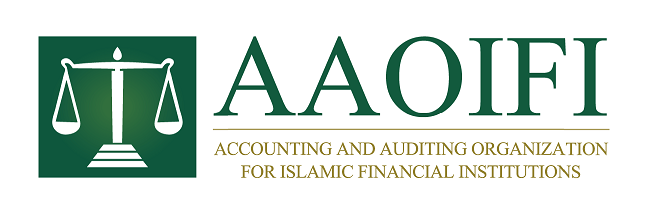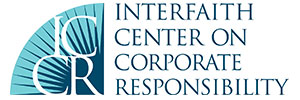ETHICAL INVESTING PHILOSOPHY
Azzad follows ethical investing criteria based on principles of economic and social justice.
Combine your values with our expertise to put you on the path to long-term financial success.
At the heart of our mission is ethical investing — a simple yet powerful philosophy and process designed to give you the potential to grow, preserve, and give away your wealth while staying true to your values.
We screen potential investments to exclude companies that profit from from interest, alcohol, tobacco, gambling, adult entertainment, insurance, and weapons. We also look at companies on a case-by-case basis and exclude some for human rights abuses or operating in an area of conflict. We remove companies with high debt ratios.
Azzad is a member of:

Accounting and Auditing Organization for Islamic Financial Institutions

The Interfaith Center on Corporate Responsibility
Halal investing allows you to preserve and grow your wealth in harmony with your values
At Azzad, we abide by the Seven Tenets of Halal Investing. These seven rules serve as the foundation of our ethical philosophy. They help us to grow client wealth in a halal and responsible way.
The word “halal” in its simplest form means “permitted.” If an object or action is designated as halal, its use is considered to be Islamically permissible.
Halal investing is also sometimes referred to as “Shariah-compliant” investing. What does this mean? Western discussions of Shariah often focus on extreme interpretations of penal codes. But Shariah, which derives from the Qur’an and the religious teaching of Islam, is also applied to the finance sector, as well. In English, the word “Shariah” means “the path that leads to water.” In other words, it’s the means by which our thirst for guidance and social justice is quenched. We believe that halal investing can be seen as part of a wider movement towards the promotion of sustainability as a key element of economic life.
Seven Tenets of Halal Investing
Screening and Filtering
At Azzad, we rely on the Halal security selection guidelines issued by the Accounting and Auditing Organization for Islamic Financial Institutions (AAOIFI), the gold standard for Islamic finance.
We employ our own disciplined filtering process, derived from AAOIFI guidelines and automated by our proprietary software, enabling us to actively avoid:
- Riba, which is often translated as interest. Basically, it refers to an increase in capital without any real services provided, or the growth of money by the mere passage of time. Riba is prohibited on both sides of the transaction – giving as well as taking.
- Gharar, which means chance, or any financial transaction or contract (such as insurance) which includes an element of chance.
- Haram (forbidden) businesses or industries. Examples include companies which derive significant income (defined as more than 5% of their total income*) from the processing or sale of alcohol, tobacco or pork. Other prohibited industries are defense/weapons, gambling, pornography and financial firms that charge or pay interest.
In addition, companies selected for investment must also meet financial screens relating to their levels of debt. Per AAOIFI guidelines, we do not invest in companies whose debt ratios are greater than 30%, whose accounts receivables ratios are greater than 45%, or whose income from interest is greater than 5%.
We believe a sound investment considers the social and ethical consequences. That’s why we incorporate values into our investment management process and require our money managers to agree to accept our screens.
* See Tenet 6.
Planning and Diversification
Once you engage us as your financial planner, we will work with you to gather all your important financial information and organize it using advanced software. This tool will enable us to create specific and dynamic financial models that we can use to evaluate different scenarios and circumstances. This will help us develop a clear picture of your current financial situation by reviewing your income, assets, and liabilities, and evaluating your insurance coverage, your investment portfolio, your tax exposure, and your estate plan.
Next, we will implement strategies that address your current financial weaknesses and build on your financial strengths. We will create an action plan for your new financial and estate plan and work closely with your other advisors, including attorneys, accountants and lawyers to ensure that your plan is comprehensive, consistent and implemented. We can handle relationships with these parties on your behalf, creating efficiency and saving you effort, time and money.
One of the most important parts of planning is how you choose to allocate your assets. “Asset allocation” refers to how a portfolio is divided among the various types of investments (also known as asset classes) that are available to invest in. Examples of asset classes include U.S. stocks, bonds, foreign investments, real estate, commodities and alternative assets such as precious metals. Most investment experts agree that asset allocation is an important determinant of portfolio performance.
How you allocate your assets depends on several factors, including your investment objectives, attitudes toward risk and investing, desired return, age, income, time horizon, and even your belief in what the market will do in the near term and long term. Your asset allocation will likely need to adjust over time as your circumstances change.
Verification and Due Diligence
Ongoing Screening and Filtering
After companies pass the filters outlined in Step 1 and are submitted to our money managers for a rigorous financial analysis, we continue to monitor holdings to make sure they do not fall out of compliance. In short, our ethics don’t end once a portfolio is created. We periodically re-screen our investments for compliance. If we find a company is no longer compliant, it will be sold.
Azzad engages scholars who have knowledge of finance to certify initial compliance as well as ensure this ongoing compliance.
Shareholder Advocacy
Today, corporations make most decisions of consequence in our society. As the owner or shareholder of a stock or shares of a mutual fund, you are part owner of a corporation. That means you have both rights and responsibilities. You have the right to sit with management, be an insider, and work for change—in short to enjoin the good and forbid wrongdoing.
An important aspect of this shareholder activism is proxy voting. We try to vote in harmony with our ethical investment philosophy. It’s a philosophy that strives to protect our clients’ financial interests as we incorporate cherished social and ethical values.
Purification
We also provide assistance with the purification process for our Muslim clients, which requires that any investment income be given to charity if it may have been generated from activities defined as unlawful according to Islamic investing principles.
Although Azzad follows strict Islamic guidelines regarding the companies and services we invest in, companies in the portfolio may earn insignificant income from interest and other prohibited lines of business, which are forbidden. We advise our clients to cleanse such income, and we calculate and accrue such purification amounts daily on our clients’ investment and retirement accounts. Purification amounts are usually accrued for the 12 months prior to a week before the month of Ramadan.
Zakah
Responsible investing for Muslims goes beyond avoiding the products and services that cause harm to society. It means helping those in need.
One of the ways we accomplish this is through Zakah, the annual sharing of wealth above Muslims’ basic needs. Every year, after deducting the annual purification amounts discussed above, Azzad calculates the portion of our clients’ assets that our faith requires to be distributed to charity. We use a proprietary, self-developed software program to calculate the amount of money clients are advised to give to charity in order to fulfill their religious obligations. Clients disburse the money to the charity or charities of their choice.
These calculations are made in accordance with the traditional 12 lunar month cycle and are usually performed a week before the month of Ramadan.
Azzad clients appreciate our focus on principled Halal investing. We think you will, too.
Proxy Voting Guidelines
According to US SIF’s 2020 Trends Report, sustainable investing in the United States continues to expand at a healthy pace. The total US-domiciled assets under management using sustainable investing strategies grew from $12.0 trillion at the start of 2018 to $17.1 trillion at the start of 2020, an increase of 42 percent. This represents 33 percent, or one in three dollars, of the $51.4 trillion in total US assets under professional management. Azzad’s ethically screened investments are part of this fast-growing trend.
